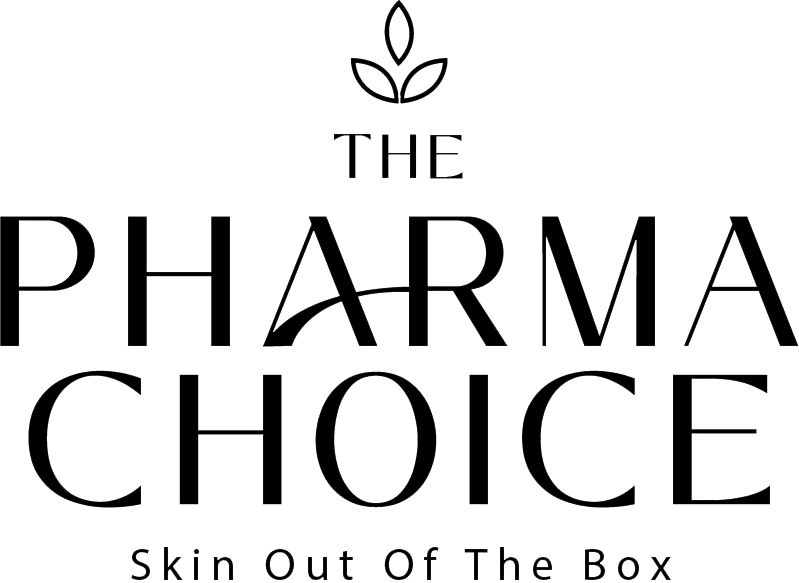Best Essential Anti-Aging products According to Dermatologists
by The Pharma Choice on Dec 10, 2023


Achieving timeless, radiant skin involves a trifecta: incorporating scientifically proven anti-aging ingredients, applying top-tier skincare products, and maintaining a steadfast routine. By diligently following these steps, you not only shield your skin from UV and free radical harm but also actively engage in anti-aging measures. This comprehensive approach not only slows down the aging process but also aids in the reversal or reduction of prevalent signs such as fine lines, wrinkles, dark spots, and skin laxity.
Your everyday routine should include washing your face morning and night with a gentle cleanser, moisturizing, and daily SPF. Beyond that, you can incorporate additional anti-aging ingredients and products that keep your skin flawless. We asked dermatologists to share the non-negotiable anti-aging products they personally recommend, so take your cue from them.
The 5 Non-Negotiable Skin Care Products for Anti Aging
1. Sunscreen
Ask any dermatologist which ingredient they’ll never leave the house without, and we guarantee it’ll be sunscreen.
“Sun damage is cumulative, and the easiest way to protect your skin is to use sunscreen with at least SPF 30 daily,” says a board-certified dermatologist. “The more frequently skin is exposed to the sun without sun protection, the more likely your skin will prematurely age, which means sun spots and age spots, wrinkles and fine lines.”
More importantly, SPF protects you from developing skin cancer, which is the most prevalent form of cancer in the world. Doctors say to look for a broad spectrum SPF 30 sunscreen and actually take the time to reapply every two hours if you are outside or sitting near a window.
2. Vitamin C
Antioxidants are essential in any anti-aging skincare routine. A board-certified cosmetic dermatologist, says her favorite antioxidant is vitamin C, also known as L-ascorbic acid.
“If you want to prevent aging, stimulate collagen, and brighten the skin, then vitamin C should be part of your daily regimen,” she notes. “Our skin cells are exposed to DNA damage from the outside with UV light, blue light, and infrared radiation, as well as outside pollution and chemicals, internal metabolism, stress. Vitamin C is a known potent antioxidant to fight this free radical damage, while at the same time building collagen and [brightening] the skin.”
3. Hyaluronic Acid
Hydration is essential for every skincare routine, and especially one that prioritizes anti-aging. It’s a humectant, which means it attracts moisture to your skin to help hydrate skin cells and plump them up. In turn, skin looks fuller, plumper, and more radiant.
“I recommend implementing hyaluronic acid into your routine as early as possible,” a board-certified dermatologist and the assistant clinical professor of dermatology. “Skin of all ages needs to be hydrated, especially if using drying ingredients like chemical exfoliants or retinol. A healthy skin moisture barrier is crucial to overall skin health.”
4. Peptides
As we age, our skin's collagen production declines, leading to wrinkles and sagging. Peptides, tiny amino acid chains, mimic the body's repair signals, triggering collagen synthesis. They plump skin, erase wrinkles, and restore youthfulness. Copper peptides refine texture, Matrixyl boosts collagen, and Palmitoyl Tripeptide-5 shields from free radicals. Serums, moisturizers, and eye creams deliver peptides effectively. Embrace peptides for ageless radiance.
“Peptides are unique in that they help boost collagen and elastin production in the skin,” says a board-certified cosmetic dermatologist. “They improve skin quality by firming and strengthening the skin.”
5. Retinoids
A derivative of vitamin A, retinoids are an essential ingredient in anti-aging routines. And you’d be hard-pressed to find a dermatologist who doesn’t have at least one or two high-quality retinoids sitting on their bathroom shelf.
Retinoids help generate skin cell turnover, which in turn helps smooth the appearance of fine lines and wrinkles while evening out your complexion. It’s also renowned for its ability to target acne. He adds, “The benefits are numerous and unparalleled and are arguably the most important step that you can take for overall skin health and anti-aging after SPF.”
He recommends starting with an over-the-counter retinol with a concentration of .25% or .5%, and notes that anything less than .25% won’t be effective. If you’ve never used a retinol before, start by using this once or twice a week at night right before your moisturizer, then build up to daily use. As your skin adapts, you can ask your dermatologist for a more potent prescription retinoid.

